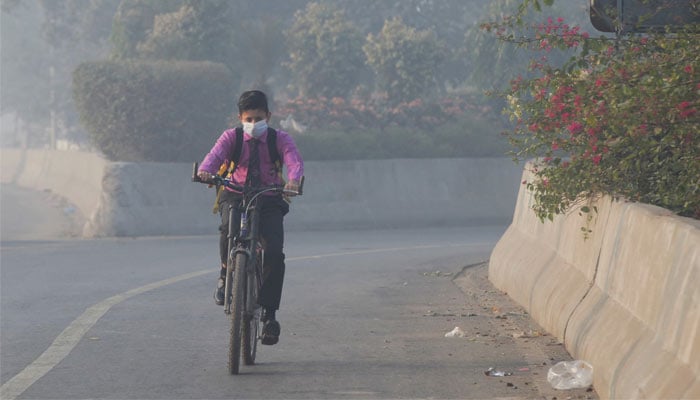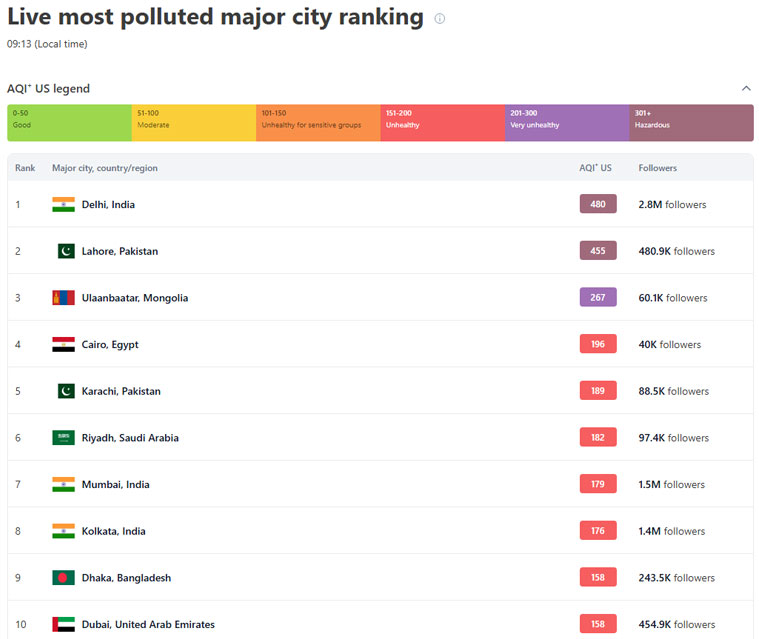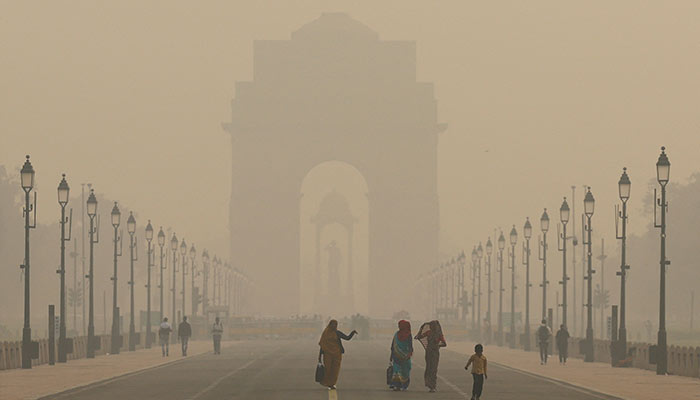Lahore schools resume after slight ease in Punjab smog
New Delhi leads global pollution chart, Punjab capital ranks second as high levels of smog continue to grapple region
Residents in Punjab capital Lahore again woke under a blanket of choking smog Wednesday, as poor air quality keeps the city on the second spot in the global pollution rankings despite a slight relief.
Schools reopened in Lahore and Multan, the worst smog-hit cities in Pakistan Punjab after a drop in dangerous air pollution.
The authorities had ordered the schools shut nearly two weeks ago in the province, home to nearly half the country's 240 million population, as dense smog hit "hazardous" levels.
"The ambient air quality has improved in Punjab, due to rain in upper parts of Punjab, change in wind direction and speed," the province's environmental agency said late Tuesday.
Students and staff will be required to wear face masks, it added, while also ordering extension of "complete ban on outdoor sports and outdoor co-curricular activities till further orders".
The air quality index (AQI) was recorded at 455 in Lahore around 9:15 this morning, registering the second-worst air quality in the world while the (PM2.5) pollutants in the air amounted to 296, which is 59.2 times higher than the World Health Organisation's (WHO) annual air quality guideline value.
The air quality index (AQI) fell to 271 late on Tuesday, which Swedish group IQAir categorises as unhealthy, after crossing 1,000 in in past weeks.
Meanwhile, Multan's AQI was recorded at 207 around 10am.
Punjab Senior Minister for Environmental Protection Marriyum Aurangzeb said that the anti-smog operation and adherence to guidelines will continue despite the reduction in smog levels and resumption of schools.
In contrast, air quality remained severe in New Delhi, making it the world's most polluted city with air quality at a "hazardous" 480 on Swiss group IQAir's global pollution rankings.
The 24-hour AQI reading in the Indian capital was at 488 on a scale of 500 around 10am, as per India's Central Pollution Control Board (CPCB).
CPCB defines an AQI reading of 0-50 as "good" and above 401 as "severe", which it says is a risk to healthy people and "seriously impacts" those with existing diseases.
Meanwhile, IQAir ranked Karachi as the fifth most polluted city with air quality at an "unhealthy" 189.
Breathing toxic air has catastrophic health consequences, with the WHO warning that strokes, heart disease, lung cancer and respiratory diseases can be triggered by prolonged exposure.
A mix of low-grade fuel emissions from factories and vehicles, exacerbated by seasonal crop burn-off by farmers, blanket the city each winter, trapped by cooler temperatures and slow-moving winds.
According to a University of Chicago study, high levels of pollution have already reduced life expectancy in Lahore, the capital of Punjab with its 14 million inhabitants, by 7.5 years.
Experts believe that modernising car fleets, reviewing farming methods and making the transition to renewable energies are the keys to overcoming the smog that paralyzes millions of Pakistanis and Indians every year.
— Additional input from AFP
-
Security forces gun down 30 terrorists in multiple IBOs in KP: ISPR
-
MQM-P calls for new province in Sindh
-
US report validates Pakistan military edge over India: PM
-
Banned TTP poses serious threat to Pakistan security: UNSC panel
-
CM Afridi clarifies remarks on by-poll after ECP requests army deployment
-
Dubai sees 3.2m Pakistani passengers in 2025 as airport sets new milestone
-
Security forces kill 23 Indian proxy terrorists in KP's Kurram
-
Pakistan to construct island to boost oil exploration: report














